Methods of Primary Data Collection in Research Methodology
Master the top methods of primary data collection in research methodology. Learn to use surveys, interviews, and experiments to gather original, high-quality data.

Joshua Marcel
Choosing the right architecture dissertation topics is often one of the most challenging decisions Master’s and PhD students face. With architecture being a vast and interdisciplinary field, identifying a topic that is both research-worthy and personally engaging can be overwhelming.
This blog helps to find a topic that not only sparks curiosity but also aligns with your academic goals and career ambitions. Whether you’re interested in sustainable architecture, urban planning, or digital innovation, we’ve curated a list of trending topics to help you get started.
You’ll also discover expert tips, strategies, and practical advice for narrowing down your choices. From aligning your dissertation with industry needs to exploring emerging research areas, this blog is designed to make your decision-making process more focused and informed.
In architecture education, the dissertation isn’t just another assignment; it’s a critical part of your academic identity. It represents your research skills, creativity, and how you interpret the world through architectural theory and practice. The research topic you choose can significantly influence your educational journey and provide lasting architecture education and career guidance.
A strong dissertation can align you with growing trends such as smart city development, sustainable design, or historical restoration, all of which enhance your academic and professional standing.
Additionally, choosing the right topic keeps you motivated throughout your research journey. It can personally excite you and hold academic value; thus, it may help you remain focused and produce quality work. This balance ensures your dissertation contributes to the field while also helping you stand out during job applications or further studies.
Selecting the right topic is the cornerstone of a successful dissertation. Your chosen subject should reflect your interests and be feasible within academic requirements.
Below are six strategic steps to help you identify and refine architecture dissertation topics that are meaningful, innovative, and aligned with your research goals.
The first and most personal step is to explore your interests within architecture. Are you drawn to urban planning, sustainable design, architectural theory, or heritage conservation?
Passion is a key driver of motivation during your dissertation. Think about the subjects that excite you during lectures or assignments. When your topic reflects your curiosity and enthusiasm, you're more likely to stay engaged and produce original, high-quality work.
Let your passion guide your choice, but stay open to refining it within academic frameworks.
Before settling on a topic, explore architecture journals on JSTOR, Google Scholar, and databases like ScienceDirect. Reviewing current literature helps you identify research gaps and avoid overdone themes.
Look for emerging trends in digital architecture, ecological design, or post-pandemic urban planning. This ensures that your dissertation is relevant, timely, and academically grounded.
A strong literature foundation not only strengthens your proposal but also directs your research toward areas with scholarly impact.
Your academic supervisor is a valuable resource. Schedule a session to discuss your ideas, seek feedback, and understand institutional expectations.
Supervisors frequently offer insights into what is feasible, what aligns with departmental strengths, and where academic gaps exist. They can assist you in refining your topic into something that is both research-worthy and achievable.
Their guidance ensures your research is aligned with academic standards and avoids ethical or practical pitfalls early in the process.
Even the most innovative idea may not work if it's impractical. Consider resource availability, case study access, data collection methods, and timelines.
Choosing a topic that fits your scope ensures smooth execution and reduces stress later. Feasibility is critical for maintaining momentum and delivering a well-structured dissertation on time.
Your dissertation should offer a unique perspective while staying relevant to current architectural issues. Avoid overly broad or hyper-niche topics.
Originality shows initiative, and relevance demonstrates critical thinking. A well-balanced topic will help you create meaningful research that stands out in both academic and professional circles.
If you're still unsure, don't hesitate to hire a dissertation writer from Ondezx. Ondezx is a trusted name in PhD and Master's support, especially for architecture students.
They offer end-to-end dissertation assistance—topic selection, methodology design, literature reviews, and final writing. Their PhD-level experts help tailor your dissertation to your academic goals and institutional standards.
Whether you're stuck in the planning phase or nearing submission, Ondezx ensures a smooth, stress-free, and professional dissertation journey.
Now that you understand how to select the right topic, let’s dive into some of the most popular architecture dissertation topics. These ideas are academically rich, relevant to today’s industry needs, and help you build a strong foundation for impactful research.

This topic explores how architects incorporate eco-friendly methods into modern design using green materials, passive solar systems, and water conservation.
You can study LEED-certified projects, net-zero homes, or bioclimatic design principles. Sustainable architecture also covers innovations in insulation, daylighting, and renewable energy sources.
Ideal for students interested in climate-responsive architecture, this subject merges creativity, responsibility, and technology to address global environmental issues while aligning with green construction practices and future-focused architectural solutions.
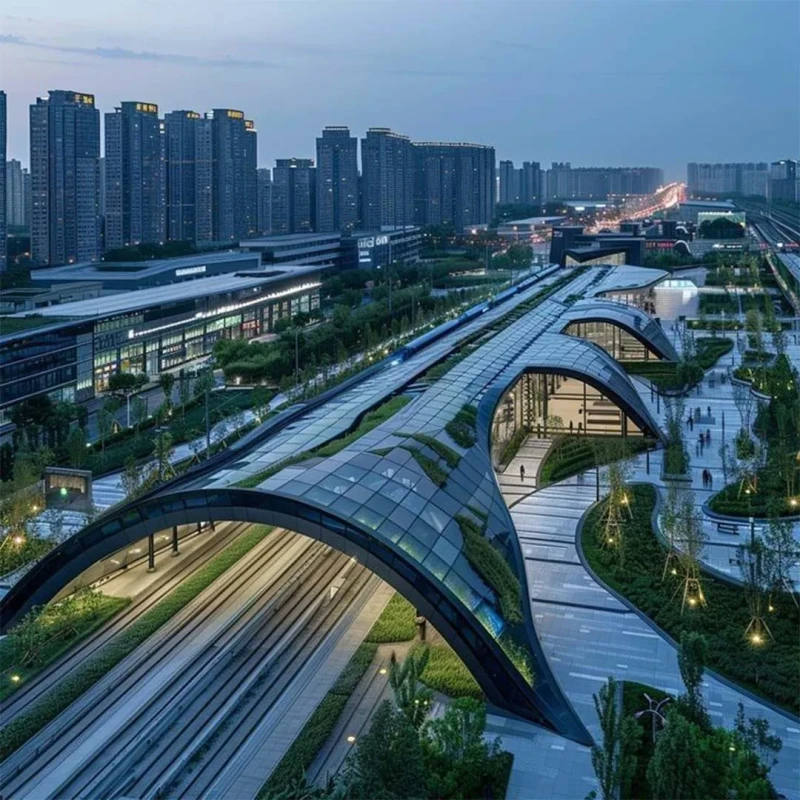
Smart cities integrate technology into urban design to improve the quality of life, resource efficiency, and infrastructure. This topic lets students explore how IoT systems, digital mapping, and responsive public spaces transform city life.
Emphasise sustainable development, walkability, mixed-use zoning, and traffic flow optimisation. Research could analyse real-world smart city projects like Masdar City or Songdo.
It is a top choice for those passionate about designing intelligent, livable cities that meet modern challenges using innovation and integrated planning.

This topic focuses on maintaining architectural heritage while adapting structures for modern use. Study preservation techniques, material conservation, legal policies, and ethical challenges in conserving old buildings.
Students can investigate adaptive reuse, UNESCO World Heritage practices, or sustainable retrofitting of historic properties. Research may involve fieldwork or case studies of renovated landmarks.
This subject is perfect for students drawn to cultural identity, craftsmanship, and restoring legacy buildings with respect, sensitivity, and architectural integrity in contemporary urban contexts

Modern architecture is shaped by technological tools that redefine design, construction, and spatial experience. Explore how BIM, CAD, 3D printing, and AI enhance precision, efficiency, and collaboration in projects.
This topic allows analysis of digital workflows, smart materials, or generative design methods. It’s great for students excited by how architecture and tech intersect to transform traditional processes.
Examine how firms use innovation to visualise complex geometries and deliver high-performance, responsive, and futuristic building solutions efficiently.

This topic addresses the urgent global need for housing by exploring architectural solutions that prioritise cost, scalability, and sustainability. Investigate prefabricated construction, low-cost materials, vertical housing, or co-housing strategies.
Research may focus on case studies from developing countries or urban slums to examine successful affordable housing models. You can also analyse the public policy's role in influencing housing design.
This topic is ideal for students interested in social impact, urban equity, and making design accessible to all communities.
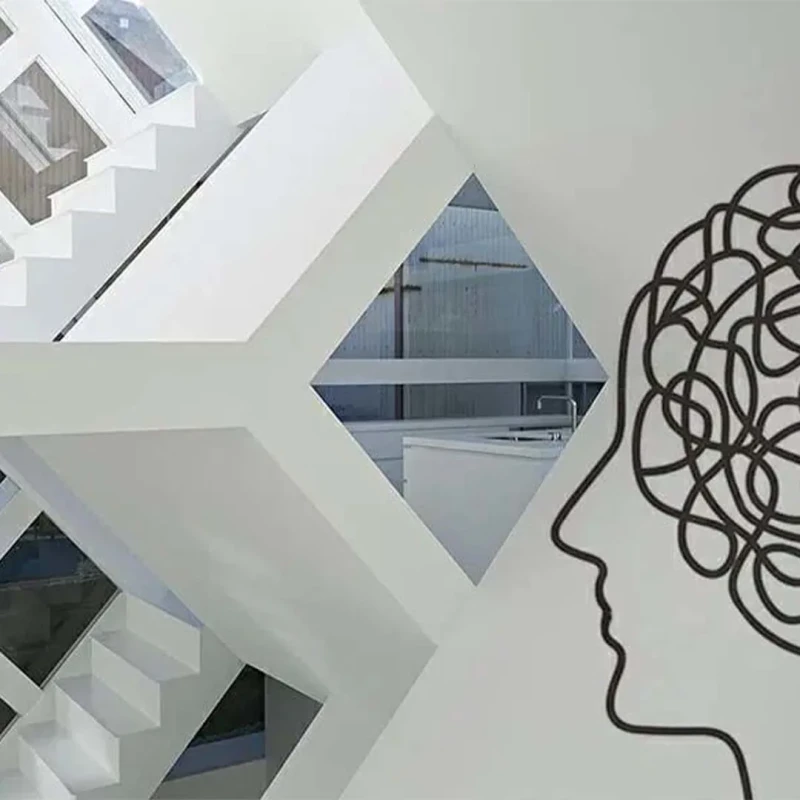
Architecture directly influences mood, productivity, and mental well-being through spatial design. This topic examines how elements like light, acoustics, circulation, and textures shape human interaction and cognitive response.
Explore therapeutic design in hospitals, calming classrooms, or inspiring office layouts. Research may include biophilic design or sensory-responsive architecture.
Ideal for those interested in neuroscience, psychology, and architecture, this topic bridges the gap between technical design and emotional experience, fostering environments that support human health and behaviour.
Looking for an edge in your dissertation? These unique architecture dissertation topics dive into emerging and underexplored areas. Choosing a niche topic can help your work stand out while contributing fresh insights to the field.

Architecture significantly influences emotional and psychological health. This topic focuses on designing environments, like hospitals, schools, or care centres, that promote mental wellness through light, acoustics, and spatial layout.
You can explore how thoughtful architecture reduces anxiety or supports recovery in sensitive settings. It is ideal for students interested in human-centred design, where architecture contributes not just to aesthetics but to psychological and community well-being.
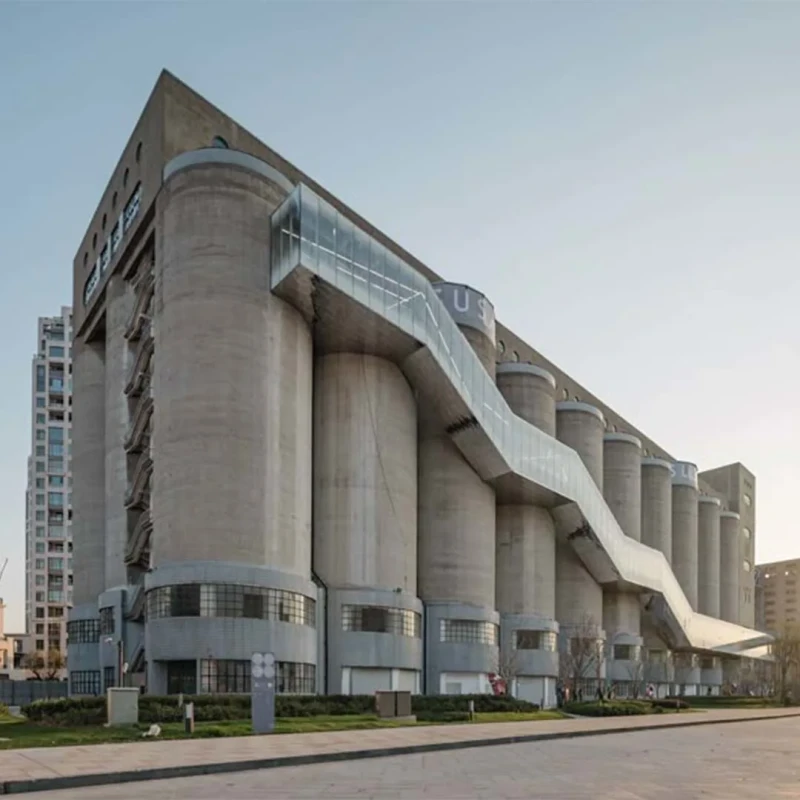
Adaptive reuse revives unused buildings by converting them into new functional spaces. Whether it's transforming old factories into co-working hubs or churches into libraries, this topic explores sustainability, historical preservation, and smart urban development.
You'll examine structural constraints, zoning challenges, and social impact. For students drawn to circular design and environmental responsibility, this niche offers the chance to shape greener cities while honouring architectural heritage.
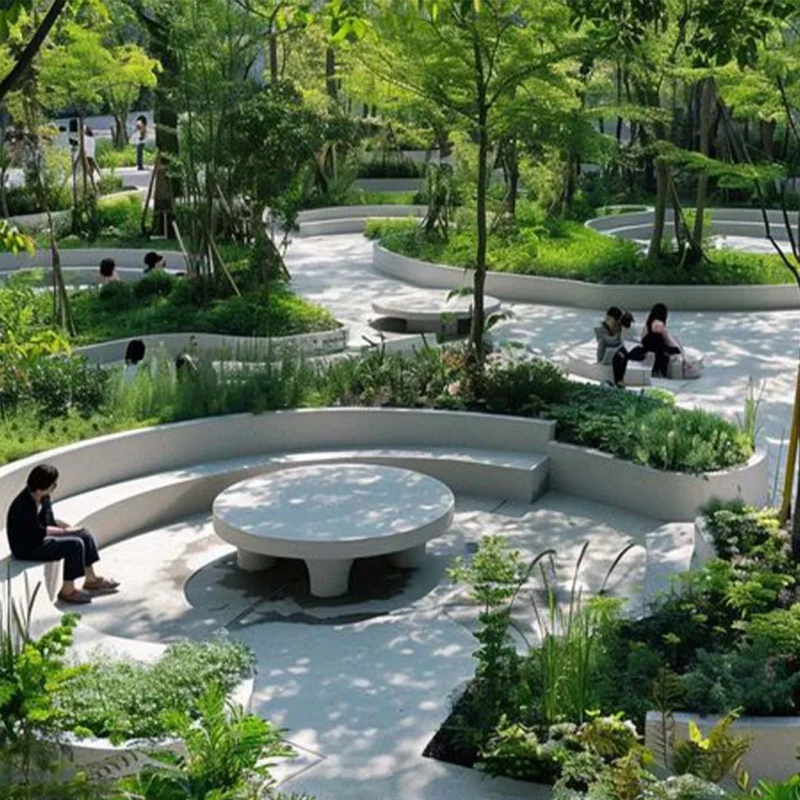
Biophilic design integrates nature into dense urban spaces, enhancing both visual appeal and liveability. This topic lets you explore features like green roofs, indoor gardens, natural light systems, and ventilation techniques.
Your research could highlight how natural elements reduce stress, enhance productivity, or improve air quality. It’s a great fit for students passionate about sustainable urban design that supports both ecological balance and human wellness.
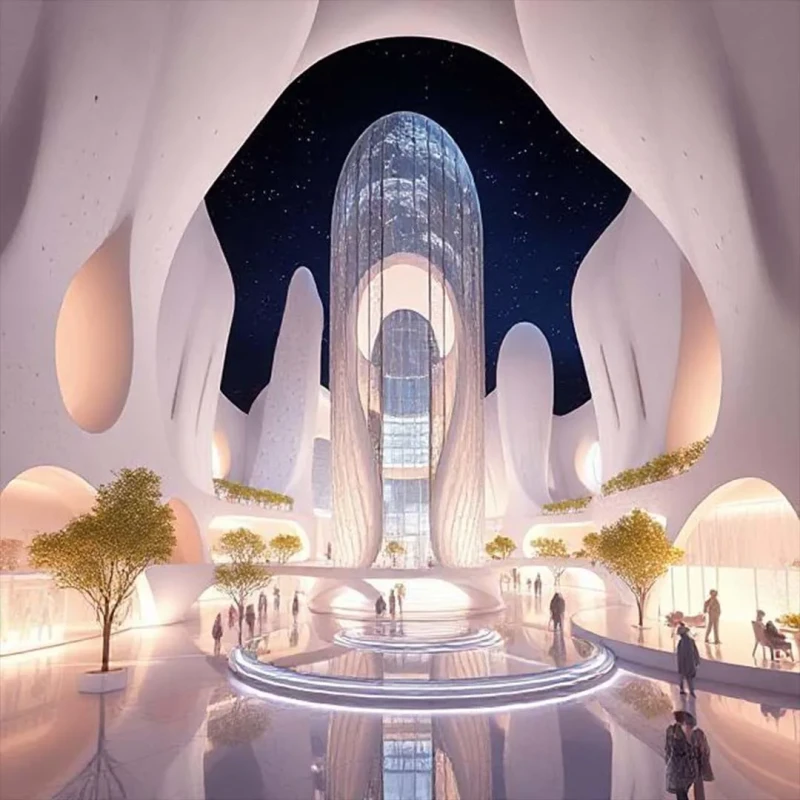
As digital worlds expand, architecture is no longer limited to physical spaces. This topic explores how technologies like virtual reality (VR), augmented reality (AR), and metaverse platforms are reshaping design.
You could study digital environments for gaming, education, or collaborative design. This cutting-edge niche is perfect for tech-driven students excited about innovation, user experience, and the creative possibilities of virtual architecture.
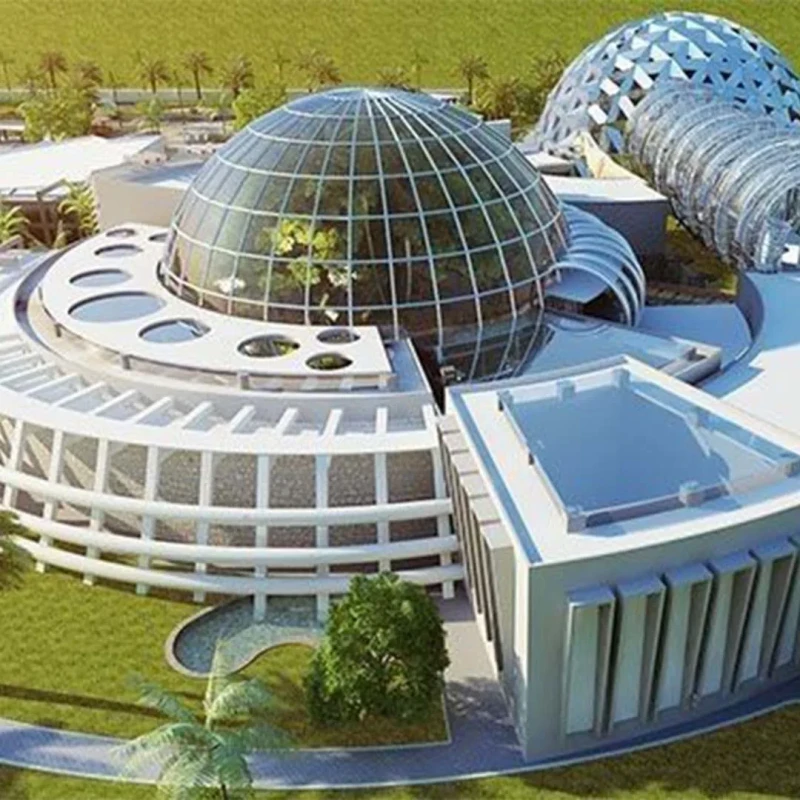
Designing in harsh climates like deserts, arctic zones, or high-altitude regions requires special architectural strategies. This topic covers insulation, orientation, materials, and weather resilience.
You’ll explore how design adapts to environmental extremes while maintaining comfort and efficiency. In an era of climate change and global mobility, this niche is increasingly relevant for students interested in sustainable, resilient, and adaptive architecture.
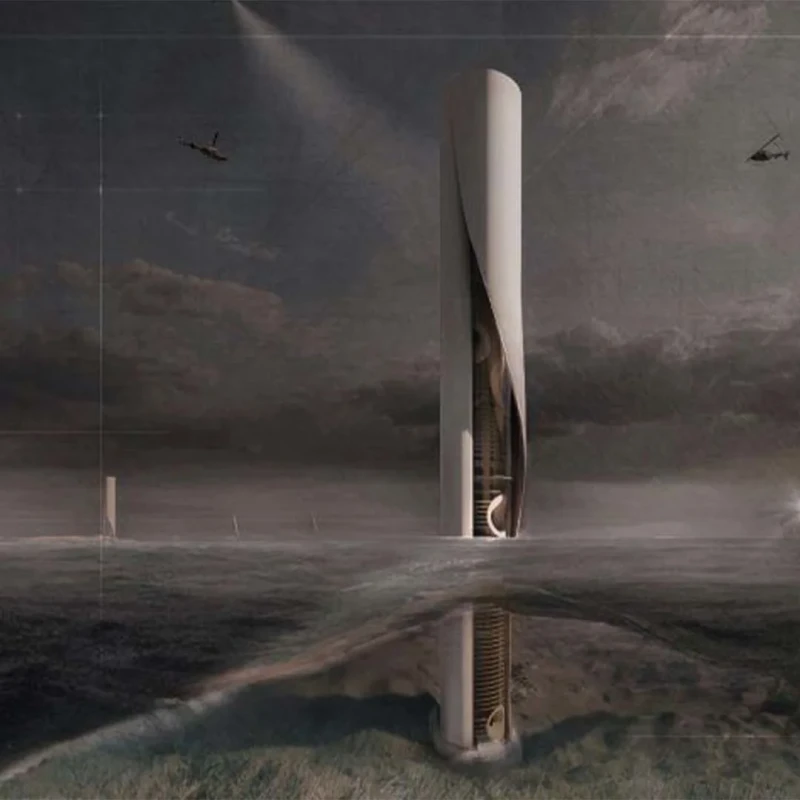
In post-disaster zones, architecture becomes a tool for survival and healing. This topic examines temporary shelters, modular housing, and rebuild strategies for flood-, earthquake-, or storm-affected areas.
You can explore case studies, design frameworks, and material innovations. For students motivated by humanitarian goals, this research shows how architecture supports recovery and resilience, bringing dignity and safety to displaced communities.
The future of architecture is being shaped by fast-paced innovation, climate action, and digital transformation. These architecture dissertation topics highlight how cutting-edge technologies and sustainable practices are redefining the design, construction, and functionality of built environments.
If you're passionate about pushing boundaries and future-proofing your research, these ideas are for you.

Smart homes powered by the Internet of Things (IoT) are transforming how we interact with our living spaces. From voice-controlled lighting to automated security systems, residential design is becoming more intuitive and efficient.
This topic allows you to explore how architects integrate IoT into layouts, address data privacy concerns, or create adaptive environments. It’s ideal for students interested in the intersection of digital technology, home automation, and energy-efficient architectural design.
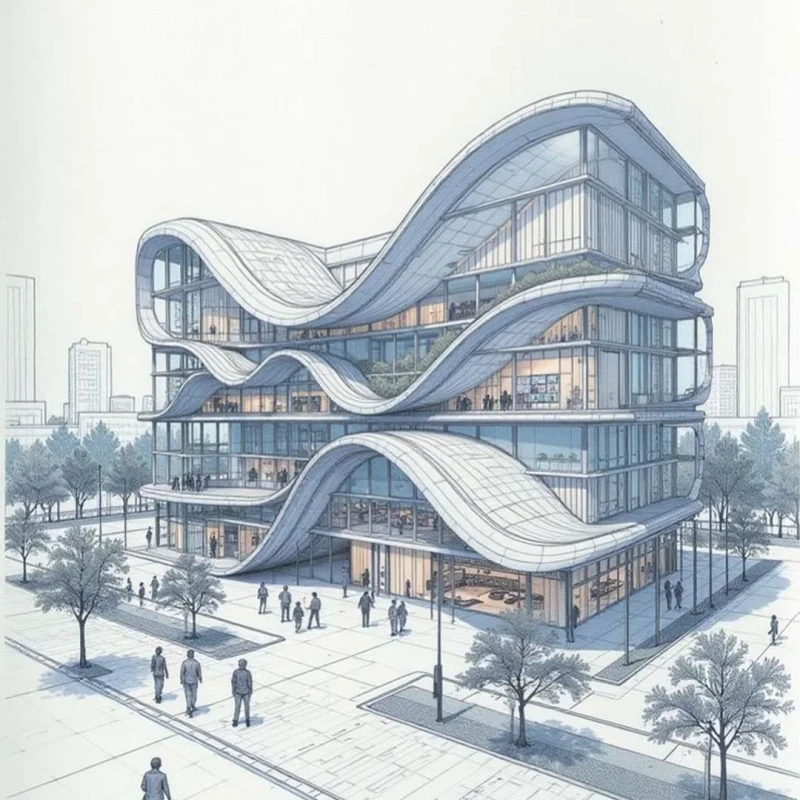
Building Information Modelling (BIM) is a game-changer in architectural practice, offering real-time collaboration across disciplines and lifecycle management. It improves efficiency, reduces construction errors, and supports sustainability goals.
Your dissertation could explore BIM in infrastructure projects, its use in cost estimation, or clash detection during planning. This topic suits students eager to explore data-driven design workflows and how BIM enhances both creative and operational aspects of architecture.
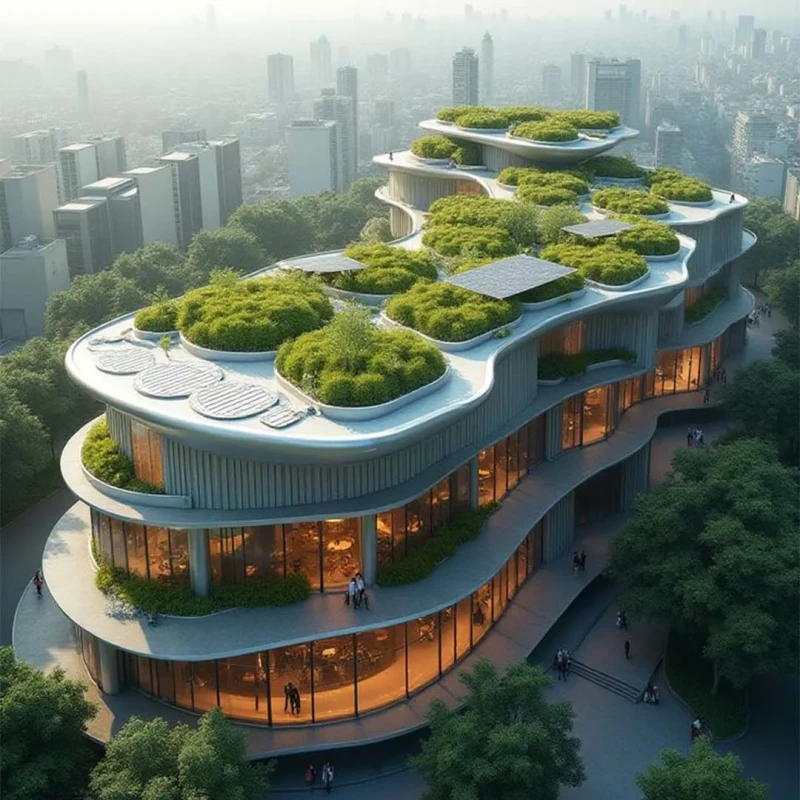
As cities become more vertical and densely populated, green roof systems provide ecological, thermal, and visual benefits. Paired with sustainable materials like bamboo, hempcrete, or recycled steel, this topic addresses urgent environmental needs.
Research could focus on energy performance, cost-effectiveness, or material lifecycle. It’s a powerful way to combine architecture and environmental science—ideal for students committed to eco-conscious urban design and innovative building technologies.
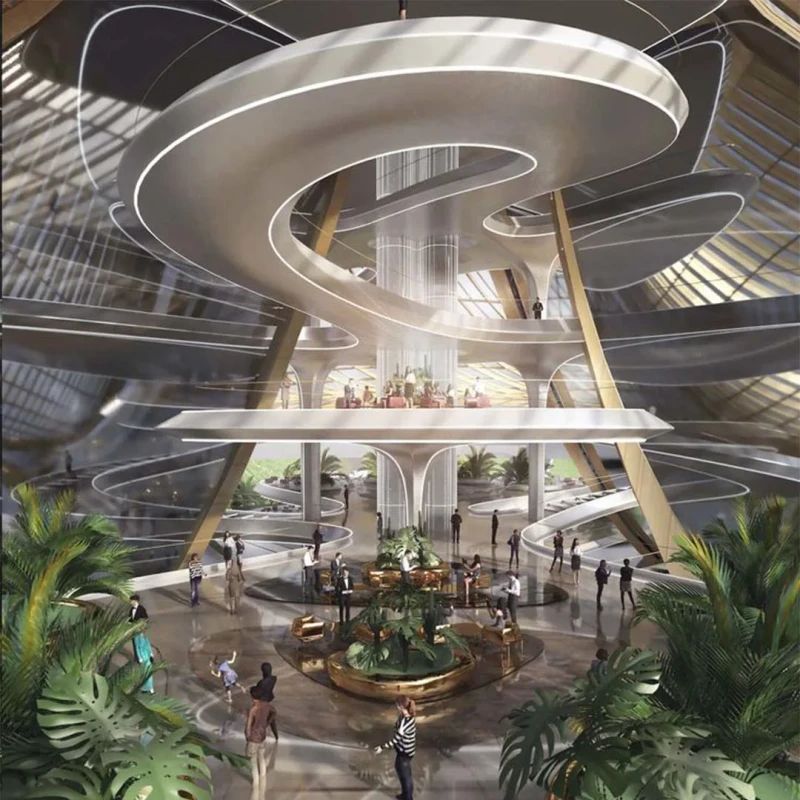
Biophilic design brings nature into the heart of urban settings to enhance well-being and promote sustainability. Think living walls, garden rooftops, water features, and daylight-optimised structures.
Your dissertation can explore how these elements improve mental health, support biodiversity, or reduce heat islands in high-density cities. With growing emphasis on healthy cities, this topic is perfect for those exploring how design can heal both people and the planet.

Architecture is on the frontlines of climate adaptation. From flood-resistant housing to carbon-neutral commercial spaces, this topic examines how design can mitigate environmental risks.
You might focus on passive cooling, elevation strategies in coastal areas, or regulatory innovations in green construction. Students choosing this topic can explore how architecture contributes to climate resilience and leads in global sustainability efforts.

Artificial Intelligence (AI) is redefining what’s possible in architectural creativity and efficiency. Tools like Rhino + Grasshopper, Spacemaker, and Midjourney help architects optimise form, function, and spatial intelligence.
Your dissertation can explore AI in generative design, site analysis, or predictive modelling. If you're passionate about computational design and digital experimentation, this forward-thinking topic offers exciting, high-impact research potential at the intersection of AI and architecture.
Avoiding these common pitfalls can save time and improve the quality of your research.
Overly broad topics lack focus, while narrow ones may limit your findings. Define a scope that is clear, manageable, and researchable.
Ensure sufficient literature, case studies, or datasets are available. Always verify your topic’s viability through a quick literature scan.
Don’t bite off more than you can chew. Select a topic that fits your timeline, academic level, and resource access.
A purely theoretical topic may not hold value in the real world. Ground your research in current needs and practical applications.
Choosing the right architecture dissertation topic isn’t just an academic requirement—it’s a strategic move that shapes your research identity and future career. From sustainable design and smart cities to biophilic innovation and heritage preservation, the possibilities are vast and impactful.
Take time to reflect on your interests, assess the feasibility, and align your topic with both academic relevance and real-world significance. A well-chosen topic not only keeps you motivated but also allows you to contribute meaningfully to the evolving field of architecture.
Let the experts at Ondezx support you. Whether you're refining your topic, structuring your methodology, or tackling the full dissertation, their expert dissertation writers offer personalised guidance to ensure you stay on track, right up to submission.
Get in touch with Ondezx today and take the stress out of your dissertation journey, so you can focus on building a future-ready academic masterpiece.
Master the top methods of primary data collection in research methodology. Learn to use surveys, interviews, and experiments to gather original, high-quality data.
Don’t write your methodology without reading this. Learn why purposive sampling is essential for case studies and how to define your inclusion criteria. Url:purposive-sampling
Master the chapterization of thesis to ensure logical flow. Learn the standard academic framework for organizing research into a professional, approved document.
A practical guide to sentiment analysis research papers covering methodologies, datasets, evaluation metrics, research gaps, and publication strategies.
Master data analysis for research papers. Learn quantitative and qualitative methods, cleaning, and reporting standards to ensure your study meets journal rigour.
Want to impress your peers? Discover the best ways to condense your research, avoid common mistakes, and handle tough questions at any academic conference.